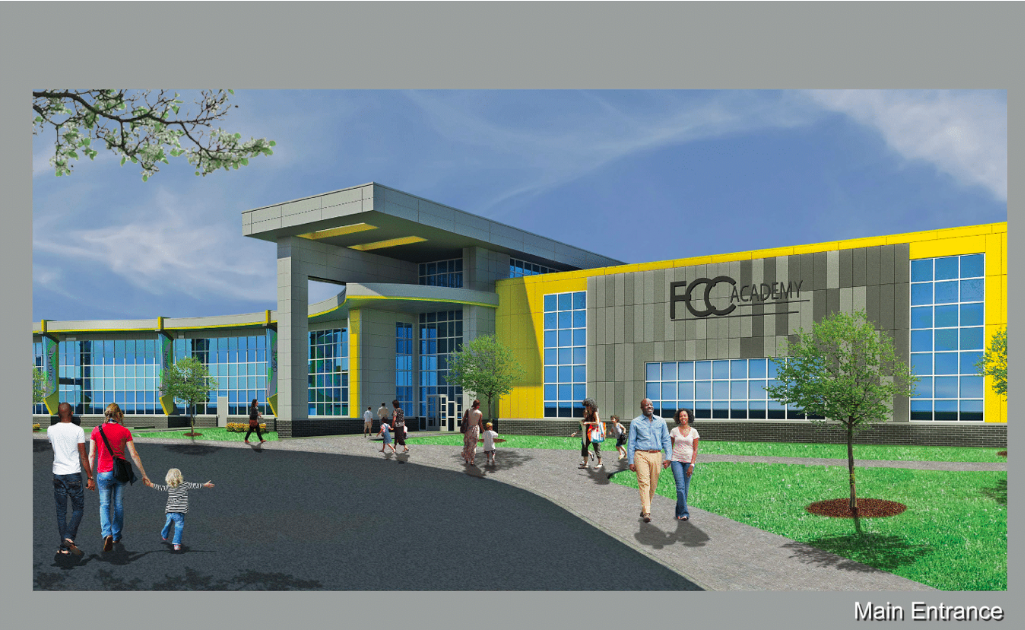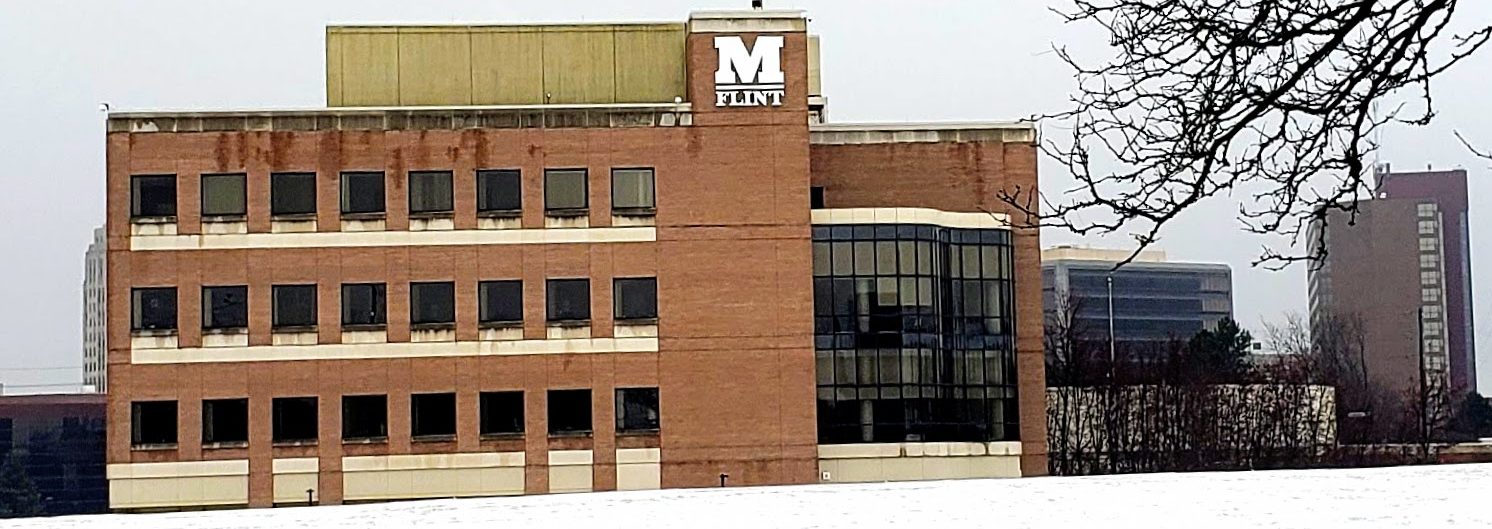By Jan Worth-Nelson
Ed: This story has been updated to add comments from Houston Mellentine, lead foreman for Structural Precast Services, a subcontractor on the Flint Cultural Center project.

Mark Brewer of Flint Electrical Union IBW 948; John Siegfried of Linden; and Wayne Coffell of Flint, from Ironworkers Local 25 picketing at the Flint Cultural Center Academy site (Photo by Jan Worth-Nelson)
A group of picketers from several local unions at the construction site of the Flint Cultural Center Academy say they will stay at the site “until it’s finished” to argue that the project should have hired more local workers.
Wayne Coffell of Flint, business manager with Ironworkers Local 25 in Burton, said while Rohmann Iron Works, chief contractor on the job, is based in Flint, it is using subcontractors out of Grand Rapids and St. Joseph.
However, Houston Mellentine, lead foreman for Structural Precast Services, a subcontractor for the project, responded that while one of the cranes being used on the site is from a company in Grand Rapids, Structural Precast Services itself is headquartered in Clarkson, not Grand Rapids or St. Joseph.
Mark Sinila, chief operating officer of the Flint Cultural Center Corporation managing the project, said the FCCC “fully respects the unions’ rights to picket and we’ve made accommodations for them.” He noted that construction for the charter school, as a public non-profit project, had to be put out for competitive bids. Rohmann, founded in Flint in the 1920s and headquartered on Kelso Street, won the contract.
“Who Rohmann selects as a subcontractor–we don’t have any control over that,” Sinila said.
Coffell acknowledged there are union iron workers on the charter school job.
“It’s more about local workers,” he said. “We have subcontractors here in town that could do the work. We shouldn’t be spending money that’s made to revitalize Flint in Grand Rapids.”
“Isn’t this money supposed to be revitalizing our city? Why are we sending our money away?” Coffell said. “Flint money stays in Flint, Flint money gets spent over and over, at banks and restaurants, the waitress gets it, we spend it in Flint.”
Mellentine, the subcontractor, took issue with Coffell’s argument that the subcontractors are limiting a local economic impact.
“Money is coming back into Flint from Structural Precast Services being on the job,” he said. “All of the non-union ironworkers on the job live within 30 miles of here, some even live in Flint. Most of our shopping, restaurant visits, or anything we need that can only be found in a major city we come to Flint for,” Mellentine said.
“In a way, regardless of where our jobs are in Michigan our money spent that we’ve earned every week is benefiting Michigan in some way by being pumped back into the economy statewide. Finally if ever single person in our company were to join the union, we would all be under the local 25 jurisdiction. So in reality we are just as ‘local’ as any of the picketers are. ”
Sinila said 80 percent of the work will be performed by union members and that decisions of who works the site are being made after a competitive process going back to June. Bids on the steel work for the project, for example, went out even before selecting a general contractor, because of lead time required to get the steel and to engineer the steel for the project’s needs. He said out of eight contractors the FCCC approached, only three submitted bids–the rest either said they were too busy or that it was not the type of steel they work with.
Coffell said he had spoken to several people involved in the project, including C.S. Mott Foundation President Ridgway White. He said White told him it was up to the contractors who they hired.
Sinila said he had talked to Coffell several times in September and this month. “We’re still not sure why they’re picketing because the contractors had already been selected and they were aware of it awhile ago.”
Mellentine said “As far as I can tell they are only picketing because there are non-union workers on the job. But since it is a right to work state, we have our right to work as well as they have the right to picket.” He said workers reporting to the job hav not been physically harassed but that they had been called “rats”and that some of the picketers’ signs included images of rats.
The Mott Foundation has committed up to $35 million to the charter school project, at the site of the former Sarvis Center in the Flint Cultural Center. Ground was broken on the project in late June. It is scheduled to open in Fall, 2019, eventually accommodating up to 650 students.

Artist’s rendering of FCC Academy, due to open in 2019.
EVM Editor Jan Worth-Nelson can be reached at janworth1118@gmail.com.







You must be logged in to post a comment.